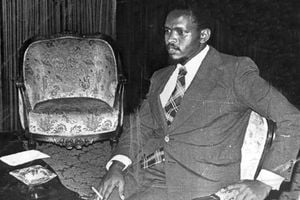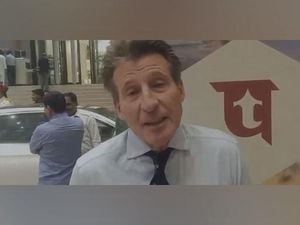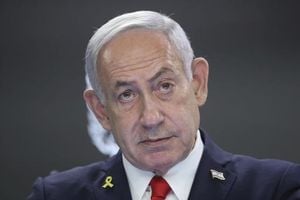The electric vehicle industry is currently under intense scrutiny, particularly focusing on one of its most prominent players: Tesla. The company, led by CEO Elon Musk, is facing investigations by the U.S. Department of Justice (DOJ) and the Securities and Exchange Commission (SEC) related to claims about its self-driving technology. Issues surrounding the misleading marketing of Tesla’s “Full Self-Driving” (FSD) feature have raised questions about whether the company has engaged in securities and wire fraud.
The investigations come against a backdrop of Tesla’s ambitious promises regarding its Autopilot and FSD systems. For years, Musk has touted the capabilities of these technologies, often implying that they are steps away from true autonomy. However, safety advocates and regulatory bodies have noted a significant discrepancy between the marketed capabilities and the reality of what the vehicles can do.
According to reports, the criminal probe into Tesla began in late 2021, primarily fueled by a series of crashes involving its vehicles while the automation features were engaged. The DOJ is specifically looking into whether Tesla deliberately misled consumers about the operational capabilities of its self-driving technology. Furthermore, the SEC is examining Tesla’s communications with investors to assess if the company inflated its technological achievements.
Among the allegations is the notion that Tesla's marketing of its FSD feature suggests that its cars can operate autonomously without driver intervention, which is not the case. A closer examination reveals that while Tesla vehicles can perform certain functions automatically, they still require active driver supervision. For instance, despite Tesla's claims that the car can essentially drive itself, the reality is that human drivers must stay alert and maintain control, keeping their hands on the steering wheel.
Features like Autopilot currently fall within Society of Automotive Engineers (SAE) Level 2, meaning that they are advanced driver-assistance systems rather than fully self-driving technologies that operate without a human driver. Despite this classification, the branding and language used by Tesla in advertising have led many consumers to believe otherwise, resulting in a misplaced confidence in the system's capabilities.
To illustrate the concern surrounding these claims, numerous lawsuits have surfaced. Lawsuits filed against Tesla allege that the company misrepresented its technology and caused consumer misjudgment about its safety and reliability. In fact, reports indicate that at least 13 fatal crashes involving Autopilot feature have been identified by the National Highway Traffic Safety Administration (NHTSA), leading to heightened regulatory concern.
In its recent legal filings, Tesla asserts that its driver-assistance features do not make the vehicle fully autonomous. Despite this clarification, Musk’s numerous public statements continue to promise an imminent future of fully autonomous vehicles. For instance, back in 2016, Musk claimed that a Tesla would be capable of driving itself from Los Angeles to New York by the end of 2017. This ambitious timeline came and went without fulfillment, raising further skepticism about his claims.
As investigations unfold, legal experts predict challenges ahead. In criminal cases, proving fraudulent intent often requires showing that the accused acted deliberately to mislead consumers. Given that Musk has often acknowledged his tendencies for optimism in projections, it may be difficult for investigators to demonstrate that he intended to deceive.
The ongoing investigations into Tesla's marketing practices relate not only to the FSD feature but also to the broader general public sentiment regarding the brand's safety. As Tesla continues to innovate and introduce new technologies, many in the automotive and tech sectors are watching closely, eager to see how this situation develops.
While Tesla is no stranger to conflict with regulatory bodies, these investigations signal a broader concern about safety in an increasingly automated world. Regulators are tasked with ensuring that consumers do not fall victim to misleading claims, especially in a sector where confidence in technological capabilities directly impacts public safety.
In simultaneous moves, state regulators in California are reviewing the situation in light of laws prohibiting companies from using marketing language that could mislead the public about the capabilities of autonomous systems. The California DMV is taking a closer look at Tesla’s FSD marketing claims, which may indicate wider consequences for the electric vehicle manufacturer.
In addition, the SEC has raised concerns about Tesla's alleged miscommunications regarding vehicle range claims, where customers have expressed that the actual range does not meet what the company claims. This has led to further investigations into how the company markets its product and what implications arise from any inconsistency.
Even as investigations are ongoing, Tesla remains a dominant player in the electric vehicle market. However, how the company navigates through these legal challenges will not only shape its future but also impact consumer trust and the industry as a whole.
Elon Musk once referred to Tesla's FSD system as an ambition to modernize transportation significantly. However, with the stakes raised and significant credibility questions lingering, the effects of this saga may resonate for years to come, impacting not just Tesla, but the overarching narrative around self-driving technology and its integration into everyday life.
As Tesla approaches another round of product unveilings and innovations, it faces the dual challenge of reconciling its ambitious vision with the stringent realities of regulatory compliance and consumer protection. How the company adapts and learns from these investigations remains a subject of significant interest for investors, regulators, and consumers alike.



